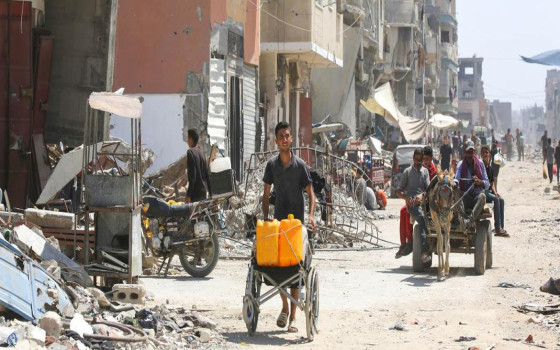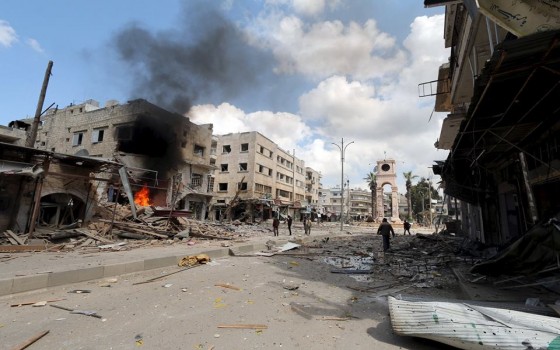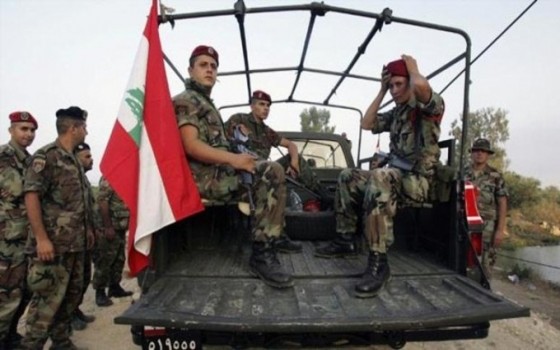
UN: Chaotic nature of Israeli military plan makes Gaza situation "full-fledged disaster"

- Europe and Arabs
- Friday , 26 July 2024 11:43 AM GMT
New York - Gaza: Europe and the Arabs
The Secretary-General of the United Nations, Antonio Guterres, said that the Israeli military campaign and the lack of humanitarian aid make the situation in Gaza a "full-fledged disaster." He reiterated what he said that Gaza witnessed the highest level of killing and destruction "that I can remember in any other military campaign, anywhere in the world, since I took office as Secretary-General." According to what came in the daily news bulletin of the United Nations, a copy of which we received on Friday morning, and which quoted the statements of the Secretary-General that came during a press conference held yesterday, Thursday, in New York, where he spoke about what he described as the "chaotic nature" of the Israeli military campaign, adding: "First, the north was attacked, and people were told to go to the south, then the center was attacked, and people were also told to go to the south, but suddenly they had to go back to the north, because apparently the problem was not solved. Then they went to the south, but suddenly they went to the center again because apparently the problem in the center was not solved. People were moving from one place to another in search of safety that is not found anywhere." The second reason, according to the Secretary-General, is that the level of humanitarian aid is not fully commensurate with the needs. However, he said: “First of all, we are in a state of complete chaos, a state where law and order has completely disappeared, and no one is responsible for security anywhere in Gaza. So we see convoys being looted at any moment.”
UN convoys under fire
The Secretary-General noted that UN convoys had come under fire for three consecutive days – Sunday, Monday and Tuesday. He added: “On Sunday, the bullets missed their target, but on Monday and Tuesday, five bullets and four bullets from the Israeli army penetrated our vehicles, despite the fact that humanitarian notification mechanisms were in place and there was every reason to assume that those convoys could move safely.”
In light of these attacks on humanitarian convoys, the Secretary-General was asked whether he had spoken to Israeli Prime Minister Benjamin Netanyahu while he was in the United States.
The Secretary-General said: “I did not speak to the (Israeli) Prime Minister, but our teams are in contact with the Israeli authorities as well as with other countries in order to make sure that this type of unfortunate incident does not happen again.”
Aid elusive
The Secretary-General said that effective humanitarian assistance is becoming elusive due to a combination of obstacles of total insecurity, total chaos and then all the obstacles to reaching lasting negotiations – difficulty after difficulty is being placed with regard to security equipment, with regard to so-called dual-use items and all the other things needed to deliver effective humanitarian assistance.
The Secretary-General added: “Let us not forget also that our humanitarian appeal has received only 36 per cent of the amount requested, so the combination of these two factors in the way military operations are being conducted and the tragic circumstances in which humanitarian assistance is being distributed creates a very tragic humanitarian situation.”
Emphasis on the two-state solution
In response to another question about Prime Minister Netanyahu’s statements to a joint session of the US Congress in which he spoke of his vision for a post-war Gaza that would be “demilitarized and free of extremists,” and whether that vision could advance the two-state solution, the Secretary-General said:
“There was nothing new in what was said yesterday, so there is nothing to comment on. It is clear that we must maintain the two-state solution as the only viable long-term solution for peace in the region, regardless of what anyone says anywhere.”
The Secretary-General was also asked about his assessment of Israeli Prime Minister Netanyahu’s statement that the war in Gaza had one of the “lowest ratios of combatants to non-combatants in the history of urban warfare, and that the number of civilians killed by Israeli forces in Rafah was, in effect, zero.”
The journalist’s question stated that Netanyahu’s statements contradicted the Secretary-General’s statement that Gaza had witnessed the highest level of killing and destruction since he assumed the position of Secretary-General. Guterres responded by saying: “My answer is simple: who do people believe in this matter? I am convinced of the answer to this question.”












No Comments Found